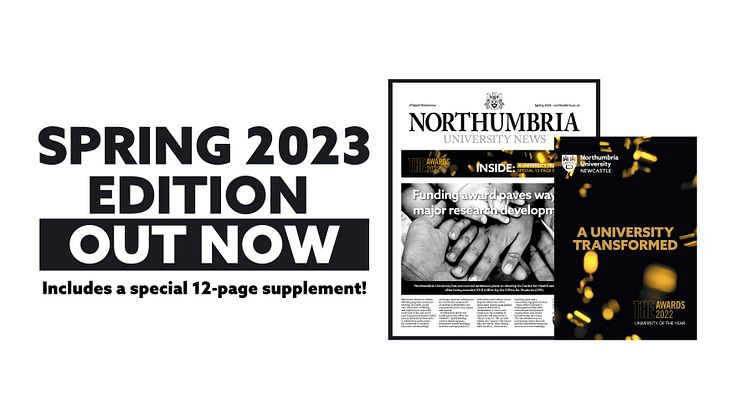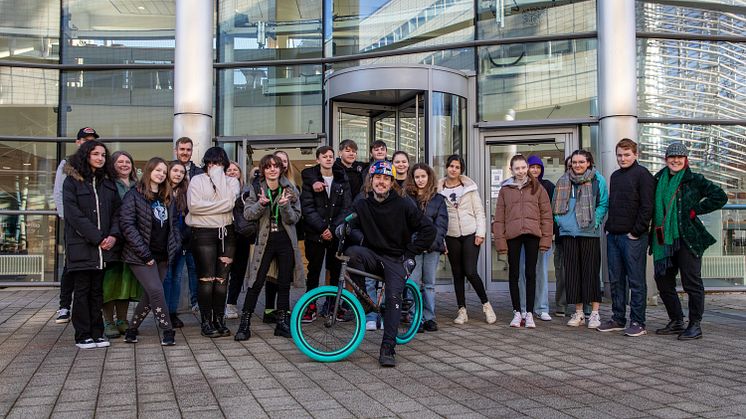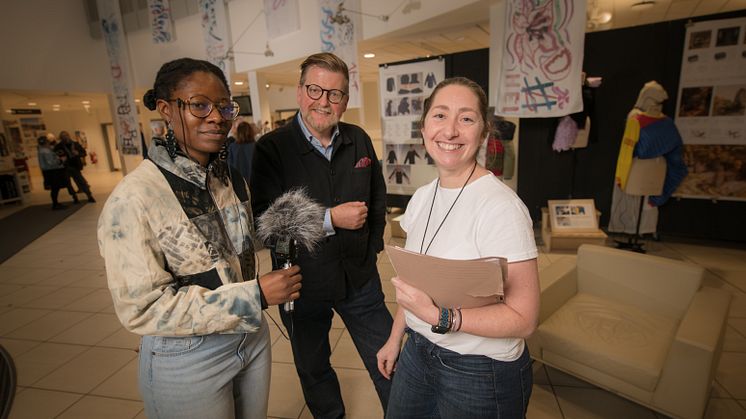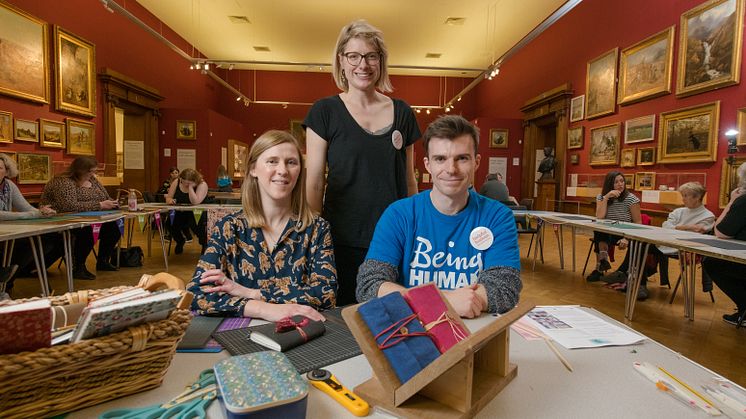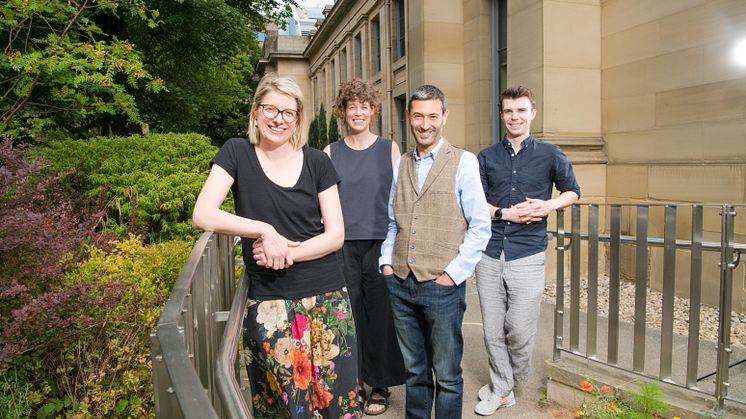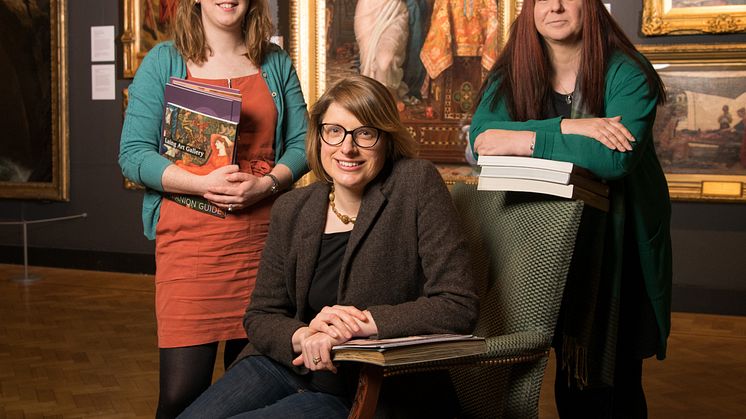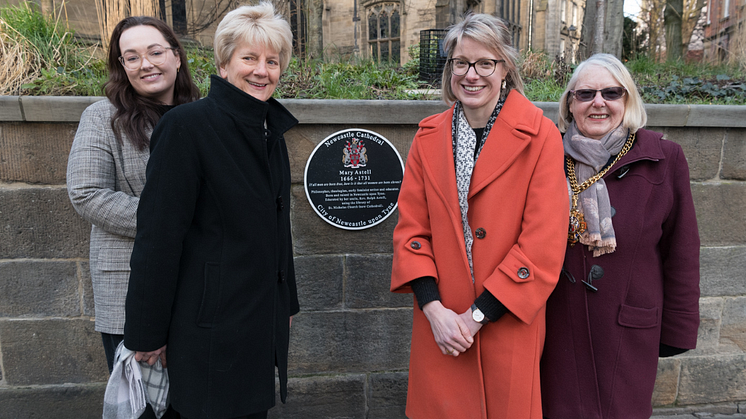
Press release -
Lasting tribute to Newcastle’s original feminist
The life and work of a North East woman, described as ‘the first English feminist’, was officially recognised this International Women’s Day, with a commemorative plaque dedicated to her outside Newcastle Cathedral.
Born in Newcastle in 1666, Mary Astell was a writer, poet, and advocate of equal educational opportunities for girls. She lived in the North East until her twenties, when she moved to London and established a charity school in Chelsea.
Following a collaboration between Newcastle City Council, Newcastle Cathedral, and academics from Northumbria University, Mary’s life was commemorated with a plaque, unveiled by both the Sheriff of Newcastle and the Acting Dean of Newcastle Cathedral yesterday, timed to coincide with International Women’s Day.
Dr Claudine van Hensbergen, of Northumbria University’s Institute of Humanities, has led the project for the new plaque. She hopes it will be the first step in a project to commemorate many more of the North East’s inspirational women.
As she explains: “We might think of Astell as ‘the other Mary’. She explored many of the same ideas as the radical proto-feminist thinker, Mary Wollstonecraft but lived a century earlier. Wollstonecraft now has a monument, and we thought Astell should be publicly remembered too.
“We hope the plaque unveiling will allow us to reach out to those interested in commemorating inspirational women from Newcastle and the region, and that this will inspire young girls and women to pursue their own ambitions and fulfil their potential.”
The plaque is sited on the wall adjoining the Cathedral and Amen Corner and was unveiled by the Sheriff of Newcastle, Councillor Veronica Dunn; and Jane Hedges, Acting Dean of Newcastle.
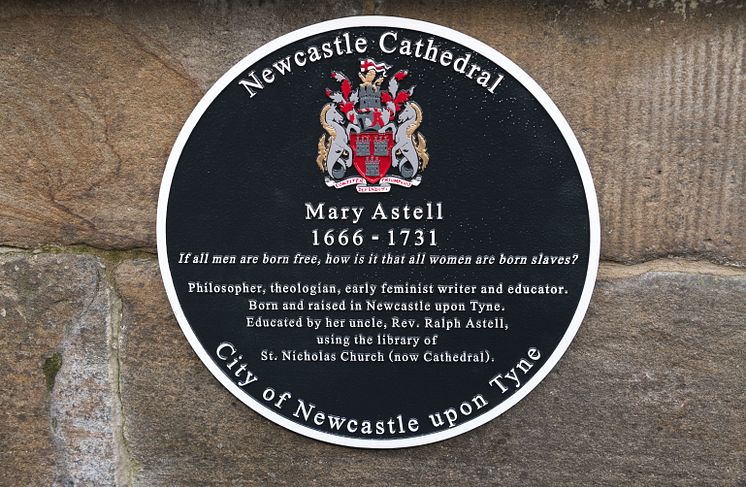
Also taking place during the day were ‘Women Behind the Stones’ tours, which highlighted some of the trailblazing women remembered within the Cathedral. A ‘Working with Women’ showcase event was also held, celebrating the organisations and individuals in the region who support and promote the rights and lives of women.
This included representatives from schools, heritage, professional services and volunteer-led groups, including the Mary Astell Academy, The Girl's Network, Workie Ticket Theatre Company, Laing Art Gallery, Wearside Women in Need, and The Common Room. University research projects on everything from women’s engineering projects to liberation magazines were also showcased. There was also a live performance from local band, Howay the Lasses.
Northumbria University Postgraduate Researcher Daisy Winter helped coordinate the event and said: “We hope this showcase will raise awareness of vital projects and organisations that further the interests of women. This is entirely in keeping with the extraordinary work of Mary Astell, who published innovative writings arguing that women were just as rational and intelligent as men and lobbied both for the need to widen women’s access to education and also proposed solutions to the problems many women faced in marriage.”
Mary Astell has strong links with Newcastle Cathedral, or St. Nicholas’s Church as it was known in her lifetime. Her Uncle Ralph Astell was the church curate. A Cambridge graduate, he educated Mary using books from the church library as well as his own collection, which he left to her upon his death. Mary was baptised in the nearby St. John’s Church, where four generations of her family were buried.
Newcastle City Council’s commemorative plaques scheme exists to highlight people, places and events from the city’s history that have the power to educate, surprise or inspire people to this day. The scheme aims to contribute to telling the story of Newcastle in all its richness and diversity, including elements of this story which have been under-represented. Anyone can propose a plaque, and recent years have seen a growing number unveiled to women.
Cllr Lesley Storey, Newcastle City Council cabinet member for a Vibrant City, said: "Mary Astell was a pioneer of women's rights, advocating for equalities before many of the more-widely celebrated historical figures who have fought for this cause.
"We're proud to support this plaque to help share the story of Mary Astell and hopefully inspire more people to champion a cause she was passionate about, and it's only fitting that we were able to do so on International Women's Day."
Newcastle Cathedral reopened in summer 2021 following the completion of the £6m National Lottery Heritage Fund project, Common Ground in Sacred Space, which took inspiration from the Cathedral’s ancient roots to reinvent the space as a dynamic hub for worship and community activity.
Changes include a remodelled interior and heritage interpretation scheme, improved disabled access and a landscaped outdoor terrace and churchyard, which is where the Mary Astell plaque is located.
The commemoration of Mary is the latest in a number of joint projects between Northumbria University and Newcastle Cathedral, with the two organisations forging strong links in recent years.
Most recently, the two organisations have been awarded prestigious government funding for a new PhD studentship for a collaborative project called The Women in the Ledger Stones: New Histories at Newcastle Cathedral, which will explore the lives and stories of the women remembered in the ledger stones situated throughout the Cathedral.
Funded through the Northern Bridge Doctoral Training Partnership, the studentship will be supervised by Dr Jen Aston and Dr Claudine van Hensbergen of Northumbria University in collaboration with Newcastle Cathedral.
It will build upon the work of Cathedral volunteers, who began exploring the women commemorated in the stones and identified the need for further, in-depth research into their lives.
Topics
Categories
UNIVERSITY OF THE YEAR 2022 (Times Higher Education Awards)
Northumbria is a research-intensive modern university with a global reputation for academic excellence. Find out more about us at www.northumbria.ac.uk
--- Please contact media.communications@northumbria.ac.uk with any media enquiries or interview requests ---









